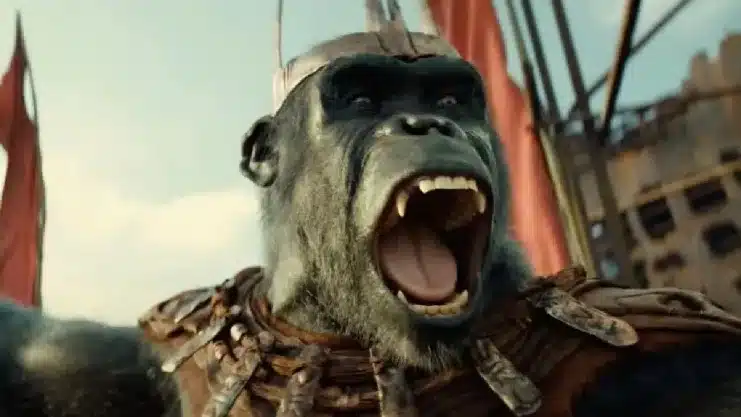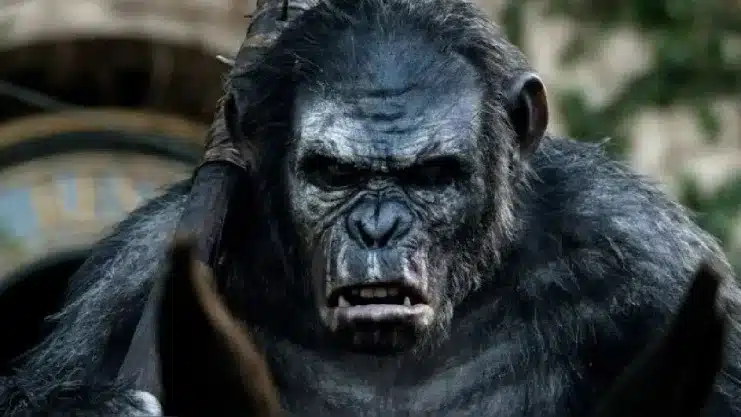
The Kingdom of the Planet of the Apes takes time to show how the new civilization, led by the apes, has progressed.
In the vast universe of science fiction, there are few sagas that have touched the hearts of the masses like “Planet of the Apes.” In the next episode, “Kingdom of the Planet of the Apes” director Wes Ball promises a bold and revealing time travel, taking the story from the Stone Age to the Bronze Age. This jump is not only chronological; It is a window into the cultural and political evolution of an emerging simian society.
The trilogy was rebooted in 2011 with “Rise of the Planet of the Apes” introducing us to Caesar, a charismatic and complex leader whose legacy lives on in this new film. Although Caesar is no longer physically present, his spirit and teachings continue to influence generations of apes. Wes Ball promises a deep portrait of a civilization in which apes not only possess advanced tools and techniques, but are on the verge of establishing their own governmental structures and religious beliefs.
A connection to the 1968 classic
In the movies, we see how monkeys evolved to become the dominant species on earth. However, it is in “Kingdom of the Planet of the Apes” that we begin to glimpse the bridge to the superior, theocratic society seen in the 1968 classic. A more complex and rich narrative.
Actor Maurice Evans, who played Dr. Zays in the original film, recently received the honor of naming the orangutan Maurice, an example of the respect and continuity the franchise holds. Details like these enrich the fan experience and bring the essence of the original films to life.

Set for a May 24, 2024 release date and with an all-star cast including Kevin Durand, Freya Allen and Peter Macon among others, “Planet of the Apes” is shaping up to be a major milestone in the franchise. . The director, Wes Ball, has successfully weaved the legacy of his predecessors into his own vision, opening a new chapter. The question that remains is does this film connect the dots with the advanced ape world we met in 1968?
The Prequel Trilogy: Legacy Reborn
Rise of the Planet of the Apes, followed by “Dawn of the Planet of the Apes” and “End of War on the Planet of the Apes,” marked a refreshing era in the saga. These films not only introduced motion capture technologies, but also provided unprecedented emotional and narrative depth.

Andy Serkis’ masterful Caesar emerges not just as an ape-like leader, but as a complex and emotional character, whose struggle for the survival and freedom of his species echoes universal themes of oppression, rebellion, and honor. These prequels not only revitalized the franchise, but expanded its mythology and set a new standard in science fiction storytelling.
In addition to its visual and narrative impact, the prequel trilogy’s ability to evoke sympathy for the apes stands out. With a unique script and memorable performances, he transforms these digital characters into beings of passion and motivation, allowing the audience to emotionally connect with their struggles and aspirations. This humanization of the apes is not just a technical triumph, but a narrative-enriching achievement.